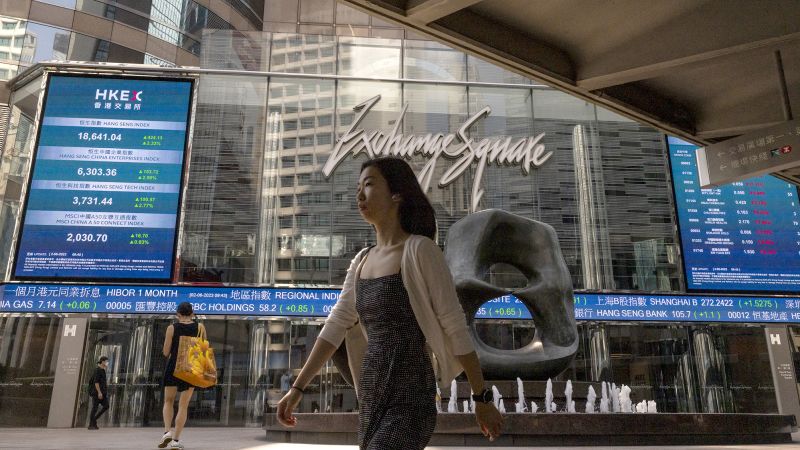Hong Kong’s Hang Seng Index saw a significant surge in performance in April, becoming the best-performing major index in the world and entering a bull market with a nearly 20% rebound from its low in January. This turnaround comes after years of heavy losses and skepticism from global investors about China’s economic future and geopolitical tensions with the United States. Factors contributing to this rebound include an improving economic landscape in China, cheaper valuations, and mainland investors putting money into Hong Kong to protect their portfolios from a weakening Chinese currency.
The valuation of Hong Kong stocks has become more appealing compared to other Asian regions, with a shift in investor sentiment as Chinese economic data has improved. Recent reports suggesting that Beijing will implement measures to address the crisis-ridden property sector have also contributed to increased optimism among investors. Attention is particularly focused on China’s property market, which is seen as a crucial component of the country’s economic stability.
There are indications that China’s economy may be stabilizing, with manufacturing activity growing at the fastest pace in 14 months in April. The country’s GDP grew by 5.3% in the first quarter, driven by robust growth in high-tech manufacturing. The government is also considering launching a national platform to acquire unfinished housing projects and convert them into affordable housing, a move that has been welcomed by analysts as a potential solution for the property sector.
Chinese equities listed in Hong Kong are gaining attractiveness compared to Indian markets, where valuations are considered expensive. Global investors are currently underweight in Chinese markets due to geopolitical tensions and concerns about the upcoming US elections. However, the recent market surge has triggered a fear of missing out among investors, potentially leading to a rotation of funds into Chinese equities. Strong inflows of money from mainland China into Hong Kong are driven by concerns about the depreciation of the Chinese currency and mainland assets.
The People’s Bank of China has implemented multiple rate cuts and pledged to maintain ample liquidity to combat deflation, in contrast to other central banks that have tightened their monetary policies. Southbound investors from mainland China have bought nearly $20 billion of Hong Kong-listed stocks in recent months to diversify their currency exposure amid RMB depreciation pressure. Mainland Chinese investors often prefer non-RMB denominated assets during periods of RMB depreciation, indicating a trend that could continue for the rest of the year. This influx of investment from mainland China is contributing to the positive performance of Hong Kong’s stock market.


